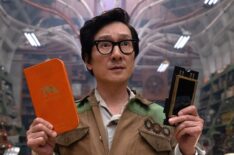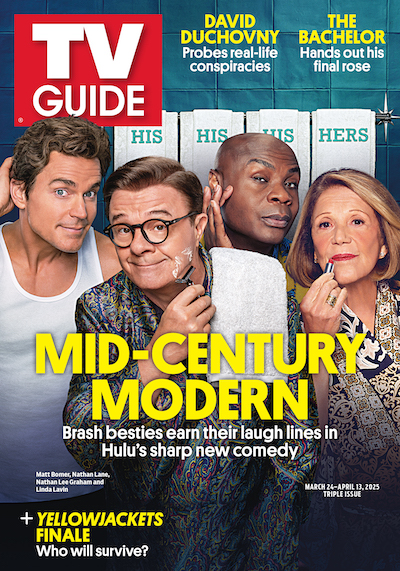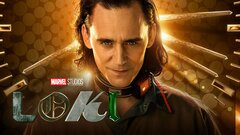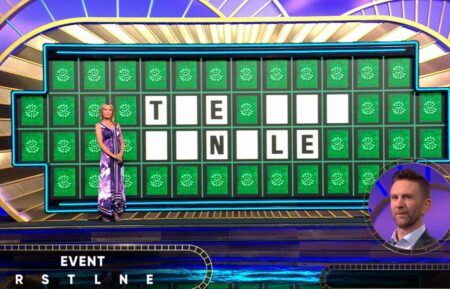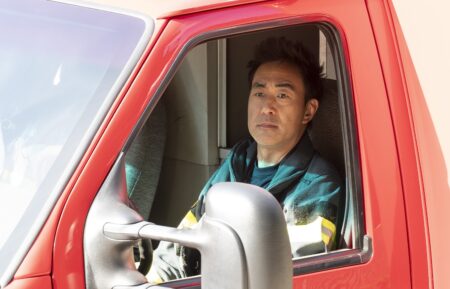‘Loki’ Team Breaks Down Finale Reveals, Shares Hopes for Possible Season 3 & More
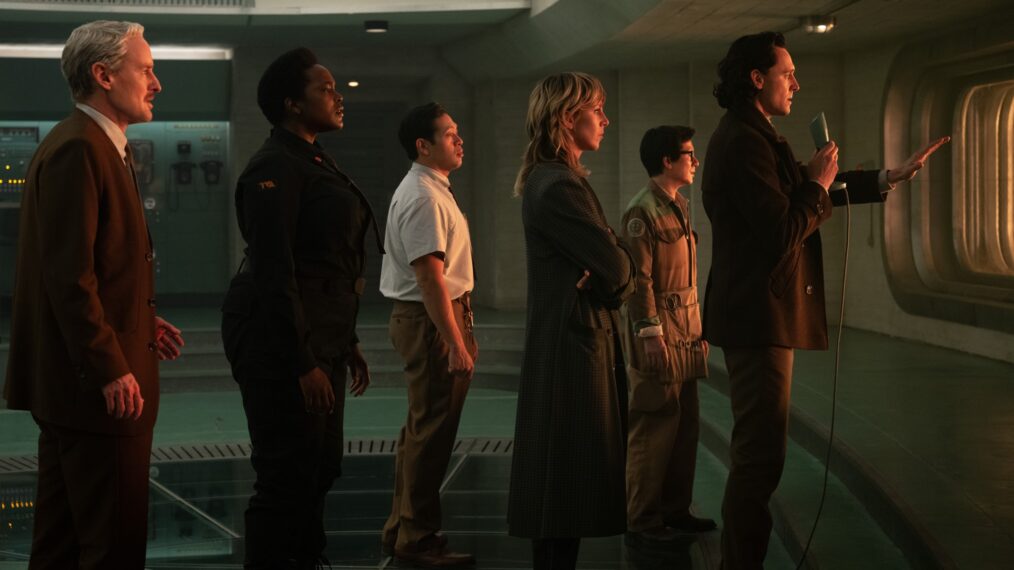
Spoiler Alert
[Warning: The below contains MAJOR spoilers for Loki, Season 2 Episode 6 “Glorious Purpose.”]
Loki‘s second season has come to a close and with it, the ending of a major chapter for Tom Hiddleston‘s former God of Mischief as the titular character transformed into a new kind of God.
By the end of the episode, he’s sacrificed his freedom and life for the safety and possibility of his friends’ lives, leaving them and everyone else the option of free will as he maintains the timelines and branches upon He Who Remains’ (Jonathan Majors) former throne. Replacing a broken system with something new and potentially better, Loki takes the throne and leaves his TVA team to keep potentially dangerous variants of He Who Remains in line.
Below, directors Aaron Moorhead and Justin Benson along with executive producer Kevin Wright answer some of the biggest questions posed in Season 2’s finale.
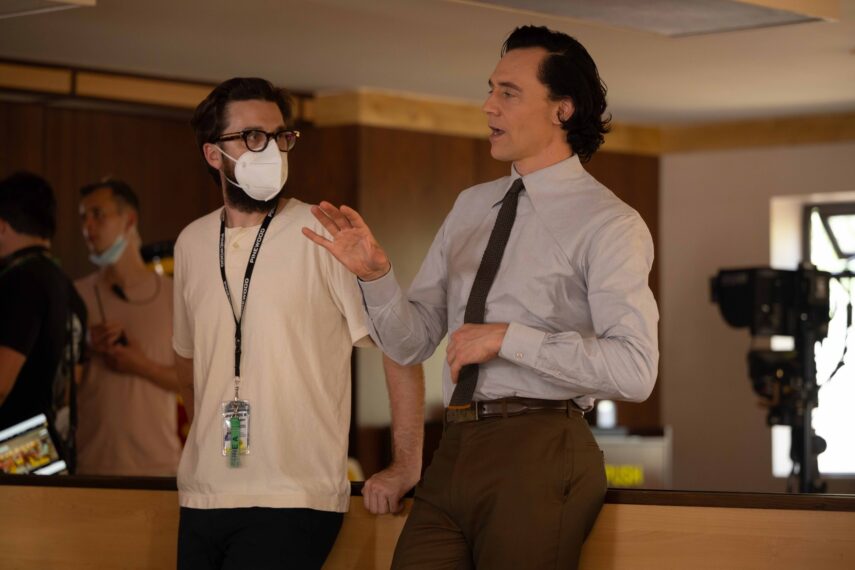
Kevin Wright and Tom Hiddleston (Credit: Gareth Gatrell/© 2023 MARVEL)
The Future of Loki and the TVA
“These were chapters one and two of the same book,” Wright says of the series Loki and its two seasons. “I do think there are other books on the shelf. I think the great thing we can learn from the comics is as one story ends, down the road, some other artists can come in and pick up a new story,” he adds, noting the possibility for more. “They can either pick up those threads or do something totally new. But to me, at least right now, this feels like a fully-formed arc and payoff of six movies and 12 episodes of TV over 12 years for Tom. And I would be reluctant to just jump straight in [with] Season 3… You want to take time.”
As for the TVA itself, Wright envisions possibilities beyond Loki. “I would keep telling stories at the TVA as long as Marvel lets me do it,” he says. “I would just love to keep working with this team that we’ve put together for these two seasons. So I don’t know… If Loki‘s our Breaking Bad something at the TVA can be like our Better Call Saul.”
How Did Loki’s Time Jumping Impact the Canon?
When it came to Loki’s time slipping in and out of moments from the past, we couldn’t help but ask Wright if this was impacting the events fans saw in Season 1, or, if ultimately Loki’s choice to break the Temporal Loom and release all of the timelines non-dependent upon his time jumps leading up to that moment. “I think it’s all on screen,” Wright answers. “I think the major things that maybe Loki has changed happen on screen. If something big happens, we show it. There wouldn’t be something that happened off-camera that we’d change. I think all of Season 1 also had to happen to get Loki to change the points that he needed to change.”
“He always still had to get to the Citadel at the end of time in Season 1. And to do that, he had to have Sylvie [Sophia Di Martino], he had to have this connection with Mobius [Owen Wilson]. All of those things had to happen to lead to that moment so that he could keep going back and try to figure out what was right,” Wright continues.
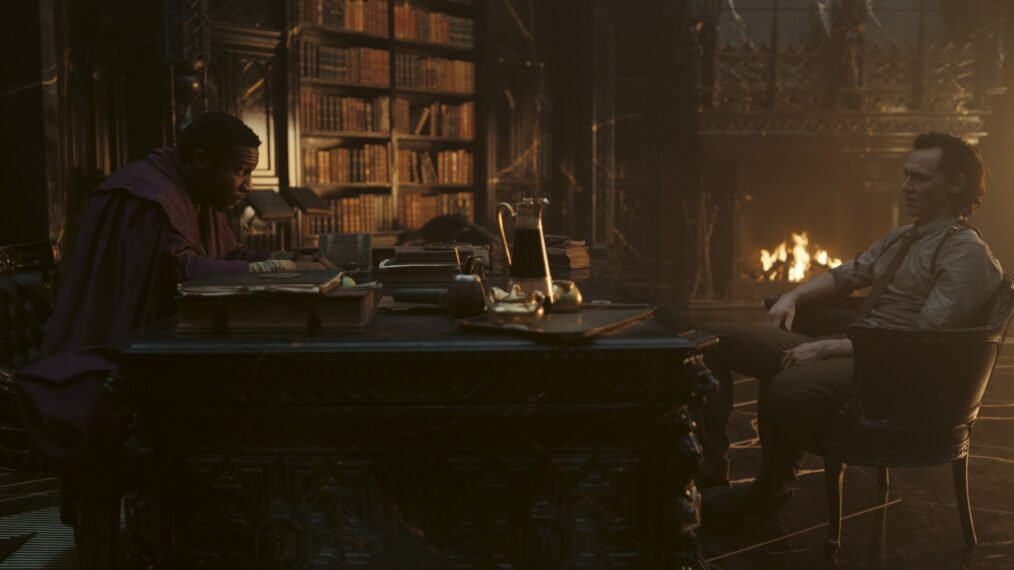
(Credit: Marvel Studios/Disney+)
The Sylvie Factor
When Loki sits down for a chat with He Who Remains at the Citadel at the end of time, the man in the chair reveals the truth about the Temporal Loom. It contains the sacred timeline and automatically deletes any branches that don’t belong. It’s a failsafe. The revelation leaves Loki with limited options as He Who Remains reveals that breaking the loom would free the timelines and his various dangerous variants that wreak havoc on the multiverse.
To escape that fate, He Who Remains tells Loki he could kill Sylvie so she doesn’t kill him, which is the reason the timelines are freed in the first place. But Loki can’t seem to make the hard choice He Who Remains suggests. Instead, he opts to break the loom and replace the system with a new one controlled by him. “He’s trying to figure out how he could have it all, how he could have his friends, how he could save the day, how he could be there. And I think ultimately he found the path that can save the most,” Wright notes. “And I’ll speak more generally. We wanted to look at heroism, and I think heroism in the comics oftentimes is very binary. It’s good/bad, hero/villain. And I think through two seasons of the show, that was always really boring to us. We tried to have everybody be in the middle and deal with really complicated problems where there wasn’t an easy answer.”
“Ultimately what he chooses in the end is a very difficult choice and there isn’t an easy answer, but I think he only gets there because of how much these people have changed him along the way. So sure, he could kill Sylvie, but I don’t think anyone would want that. That’s the person who completely helped him become who he is, along with Mobius and everybody in the TVA. I think it goes back to the beginning where he was telling Mobius, ‘I just wanted time.’ And then in the end, he’s got all the time in the world.”
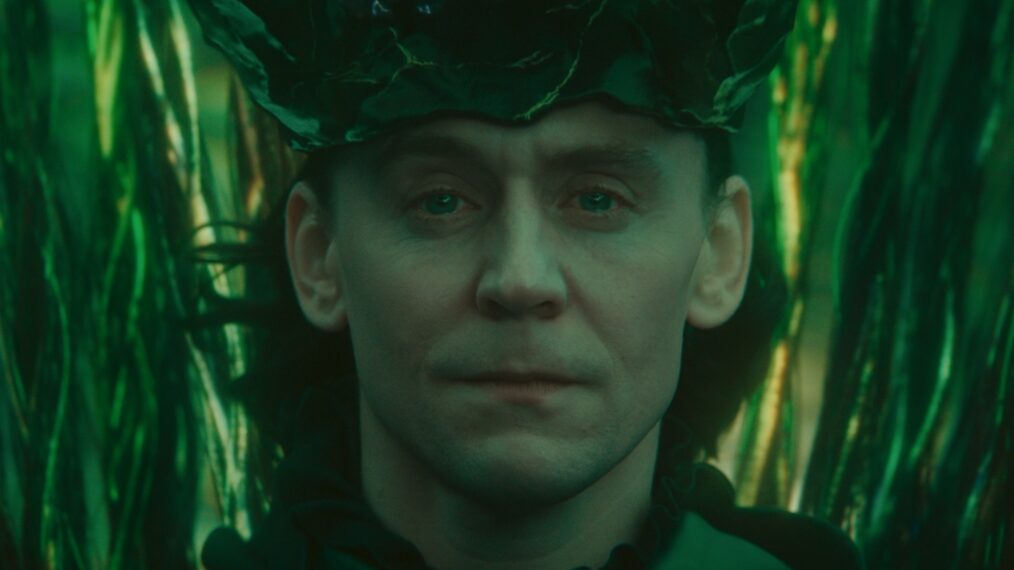
(Credit: Marvel Studios/Disney+)
Was Ravonna Killed by Alioth?
In the episode’s final moments, Ravonna (Gugu Mbatha-Raw) wakes in the void as a result of being pruned by Sylvie. As she looks up at the purple-tinged sky, wind and light flashes indicate the cloudlike-creature Alioth is near. So, was she consumed by the threat or did she escape? “That’s one of my favorite shots in the whole series,” Wright notes, “the music, everything. I would just say she looks pretty scared at first. And the look that she finishes with it does not look like fear to me. She’s in the void. Ancient Egypt is right behind her. She looks at Alioth, there’s some recognition there.”
“I love Ravonna,” Wright adds. “I think like Kang, she has a lot of stories in the comics that are cool, and I would love to keep telling those stories with her.” So, put a pin in any death confirmations for now.
Capturing Loki’s Ascension
“Hats off to Kevin Wright, Tom Hiddleston, and Eric Martin,” Benson says about the major milestone in Loki’s journey. As one of the season’s most VFX-heavy sequences, the God’s ascension took a lot of work to put together. “They had already worked that out by the time we were brought on board,” Benson admits of his and Moorhead’s role as directors. “As soon as we heard about that sequence [and] the bittersweet tragedy of it, we were hooked. And then in terms of the execution, it’s hats off to Chris Townsend and the whole VFX department, but also to all of us for having hundreds of meetings sitting in our room figuring out that sequence and every little piece of it. God, it’s a relief you like it.”
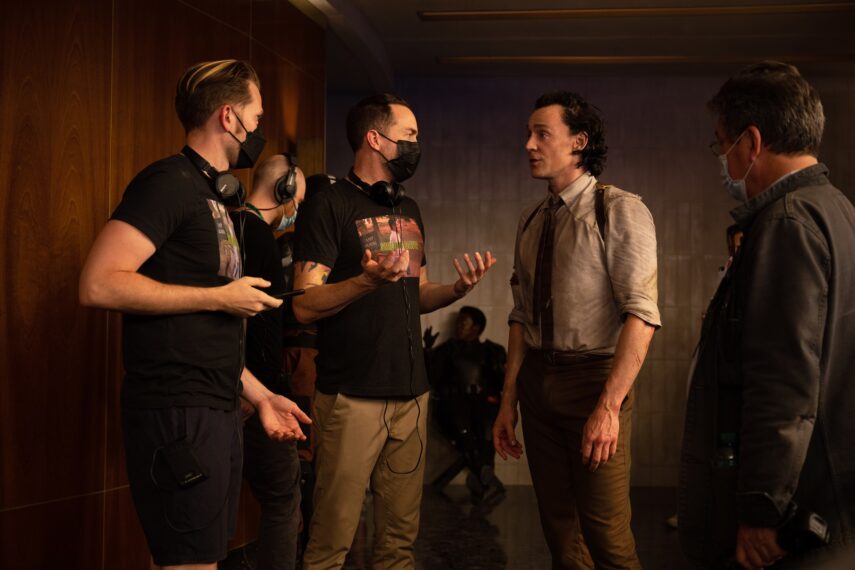
Aaron Moorhead and Justin Benson with Tom Hiddleston on set (Credit: Gareth Gatrell/© 2023 MARVEL)
Moorhead notes the number of practical sets the show is filmed on, “but where we’re going to leave Loki is in blue-screen land. Is that how this is going to be? And so we took every single step we could to make sure it didn’t feel that way. Loki’s not on a treadmill… They built a huge tower of stairs, he has a chair, and we made sure that it actually at least sort of felt like he wasn’t just pantomiming and grabbing things, there were physical objects to grab, and that at least helped us get to where he wanted to be.”
As for preparing Hiddleston for the big day, Moorhead and Benson had the actor revisit vital moments from Loki’s journey throughout the MCU. “He went back to holding and rewatched key scenes of him from Avengers and his introduction [in Thor], and Loki Season 1,” Moorhead recalls of Hiddleston’s process.
The actor, who is also an executive producer, was so committed that when the finale took characters back to the Citadel moment from Season 1, Moorhead says with a laugh, “If anybody missed even a little beat, Tom would catch it. Tom would always catch it. His brain is burning on fire all the time in that way. He’s a genius.”
That Alcatraz Cameo
In the fifth episode after the Temporal Loom supposedly breaks, Loki ends up slipping through time to discover his TVA friends positioned back on their timelines. One of them is Casey (Eugene Cordero), who is actually 1960s Alcatraz escapee Frank Morris. Alongside Frank are John and Clarence Anglin, played by Benson and Moorhead respectively.
“There was an opportunity here expressed to us where it was like, ‘You could have a role.’ And then when this Alcatraz thing came about, it was almost immediate,” Benson recalls of the guest star experience. Of course, he and Moorhead were pulling double duty as directors. “Those days were so fun to shoot because it felt like one of our indie film sets or running in front of the camera, running behind the camera, and you have this better 360 thinking and three dimensions more because you’re doing both,” Benson adds. “It was so much fun, and I’m so grateful.”
Moorhead can’t help but think back on Hiddleston’s reaction to it all, adding, “He was delighted watching us be so delighted because it was three o’clock in the morning, in the freezing cold, and we were all soaking wet and he was like, ‘I feel like I saw you for the first time.’ He saw your soul.”
Perhaps there’s room for more moments like that? Only time will tell. For now, relive every vital second from Loki‘s Season 2 run anytime on Disney+.
Loki, Seasons 1-2, Streaming now, Disney+
From TV Guide Magazine
How Hulu's 'Mid-Century Modern' Is a 'Golden Girls' for Our Times
Settle in for some older and bolder laughs with the BFFs of a certain age in the new comedy starring Nathan Lane, Matt Bomer, and Nathan Lee Graham. Read the story now on TV Insider.

